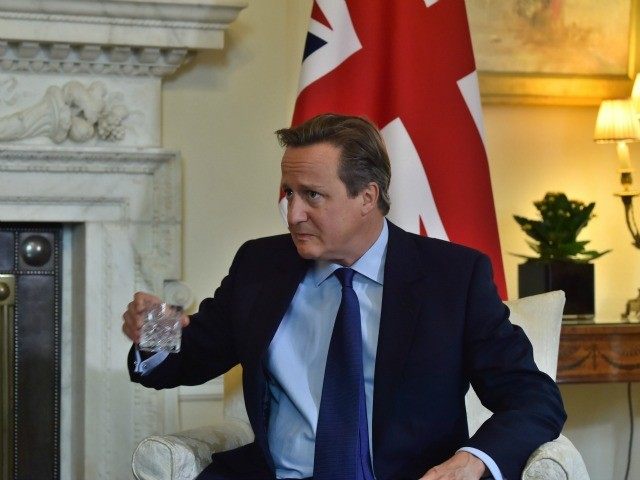David Cameron’s slim hopes of reining in European Union (EU) excesses have taken another very public blow. Britain was told yesterday it must pay £1 million to double the number of judges at a European court despite the Prime Minister’s opposition to the plan and vow to defeat it.
The UK had argued against the “disproportionate” plan to increase the number of judges at the European Court of Justice’s General Court from 28 to 56 over the next four years.
Ministers argued there was no need to appoint so many more judges to the second-highest court in the EU – who are each paid £158,000 a year – on the bench in Luxembourg to deal with a backlog of cases.
The decision came on the same day Mr. Cameron said he may have to campaign for Britain to leave the EU if he continues to be “completely ignored” by EU partners.
Britain has been fighting the plan since April but was left isolated at a meeting of the European Council last Thursday as the only country to vote against the plan – which will begin to come into force from January 1, 2016.
It will cost £9.7 million a year overall to pay for the extra judges, with the UK contributing £935,750 towards this. It is not yet clear if the cash will come from Britain’s existing contribution to the court, as ministers hope, or if it will require extra funding.
Eurosceptic MP Sir Bill Cash told the Mail on Sunday last night: “This vast increase in the number of judges is because the system is out of control, far too complex and undemocratic.
“Our Government doesn’t have the will to stop the system, and when we are working with the system we have no influence.”
A Foreign Office spokesman is quoted by the newspaper: “This decision to double the number of judges is disproportionate, which is why we’ve been arguing against the proposal.”
The extra judges will be introduced in three batches, with member states resorting to drawing lots to decide who joins first.
The appointments are widely seen as an attempt to speed up decision making at the general court, which deals with cases brought by companies and individuals against EU bodies, including antitrust cases, according to the Financial Times.
It has come under criticism for being too slow, too bureaucratic and too unresponsive to the needs of member states with complex cases such as competition issues taking on average four years to complete.
But Marc Jaeger, its president, registered “deep concern” over the appointments plan in a letter to the head of the European Council late last year, arguing that the court could be speeded up for less money and more quickly.
In the letter, seen by the Financial Times in April, he wrote: “There are more appropriate, more effective and less onerous means by which to strengthen the General Court and to achieve better and even faster outcome for litigants.”
As Breitbart London has reported, UKIP leader Nigel Farage believes the long-awaited decision illustrated “why the EU is a byword for profligacy and labyrinthine bureaucracy. It is idiotic to have a huge and unnecessary increase in the number of judges when even the EU says they aren’t needed.”
Follow Simon Kent on Twitter: Follow @SunSimonKent or e-mail to: skent@breitbart.com

COMMENTS
Please let us know if you're having issues with commenting.